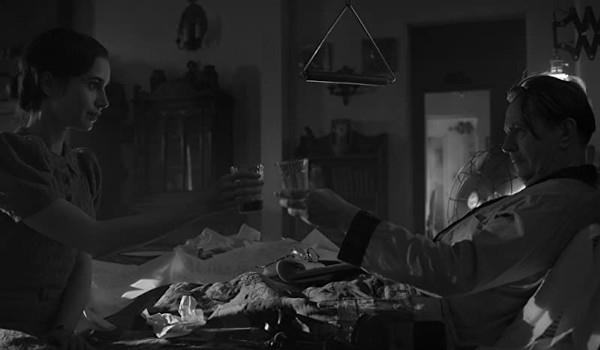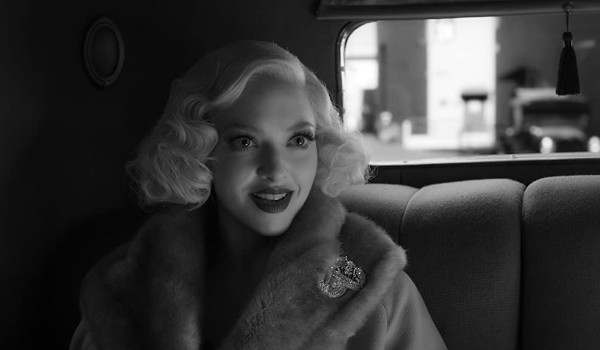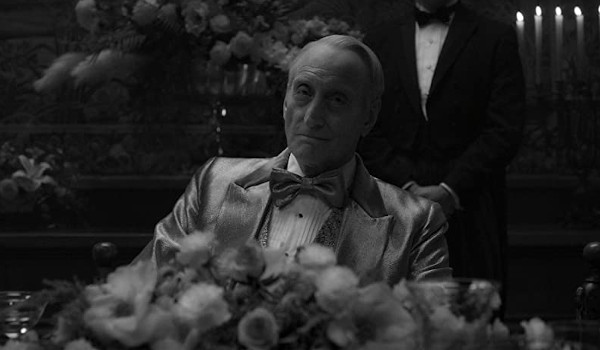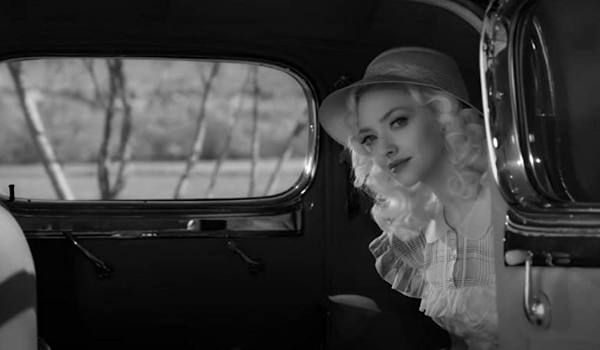- Title: Mank
- IMDb: link

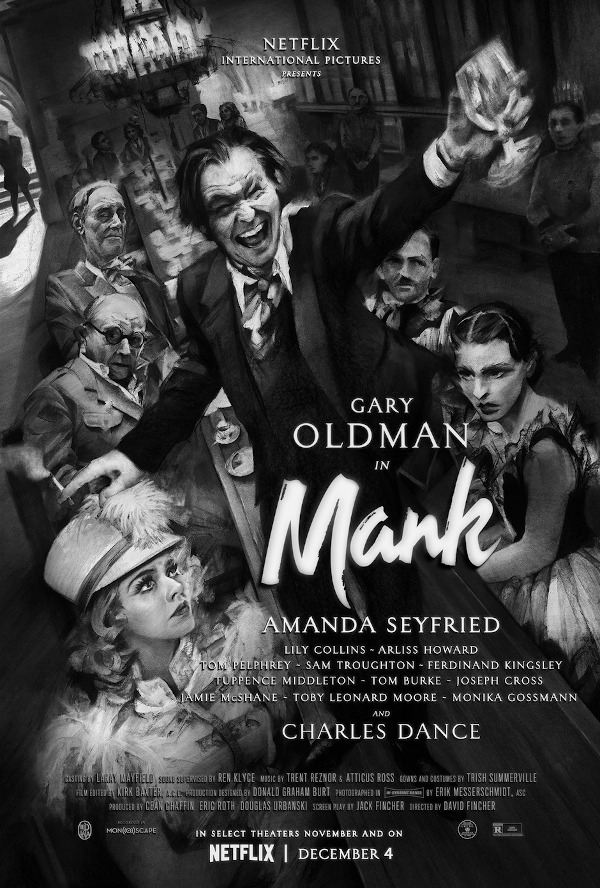 Mank tackles one of cinema’s most legendary controversies about who should get credit for the script of what many believe to be the greatest film ever made. By the name of the film, the friendly nickname given to writer Herman J. Mankiewicz (Gary Oldman), you can guess which side director David Fincher takes. Using the screenplay from his father Jack Fincher, Mank delivers a story from the perspective of the writer hired by Orson Welles (Tom Burke) to anonymously write the screenplay for a thinly-veiled take on William Randolph Hearst (Charles Dance) which would become Citizen Kane.
Mank tackles one of cinema’s most legendary controversies about who should get credit for the script of what many believe to be the greatest film ever made. By the name of the film, the friendly nickname given to writer Herman J. Mankiewicz (Gary Oldman), you can guess which side director David Fincher takes. Using the screenplay from his father Jack Fincher, Mank delivers a story from the perspective of the writer hired by Orson Welles (Tom Burke) to anonymously write the screenplay for a thinly-veiled take on William Randolph Hearst (Charles Dance) which would become Citizen Kane.
The script glosses over early discussions between Wells and Mankiewicz, and ignores the numerous rewrites Wells made to the script while depositing the narrative that Welles was seemingly only nominally aware that a script was even being written. Despite some beautiful cinematography from Erik Messerschmidt, punchy dialogue from the elder Fincher, and solid performances from all involved, Mank is a bit uneven. The first hour, largely focused on introducing Mank’s over-the-top personality, is nearly flawless, but as the second-half of the film attempts to get more dramatic things get maudlin and melodramatic.
Much of the film is presented from Mankiewicz’s sick bed where he dictates the script to his secretary (Lily Collins in one of the film’s many underappreciated roles). These scenes lead to flashbacks of Mank’s own experience with Hearst, his wife Marion Davies (Amanda Seyfried in yet another great supporting performance), and the turbulent end of his career for MGM and Louis B. Mayer (Arliss Howard). It’s from these memories much of the detail of Citizen Kane is based. As it gets into politics and Mank’s fall from grace at the studio, it’s also where the film loses focus and struggles before eventually limping to the finish line.
Along with Seyfriend and Collins, Tuppence Middleton as the often mentioned, but rarely seen, Mrs. Mankiewicz and Monika Gossmann as his nurse continue the trend of strong female performances. Having already given us Mayer, a miserly Republican who would make Scrooge blush, the script doesn’t really need another villain although Fincher seems determined to force Welles into that role, even if the script can’t really find the ammunition to sell that argument. At least Burke does a fairly good version of Welles, even if he’s kept largely on the sidelines. Mank succeeds in delivering half of a great film. Maybe it needed a little Welles’ magic to get it the rest of the way.

